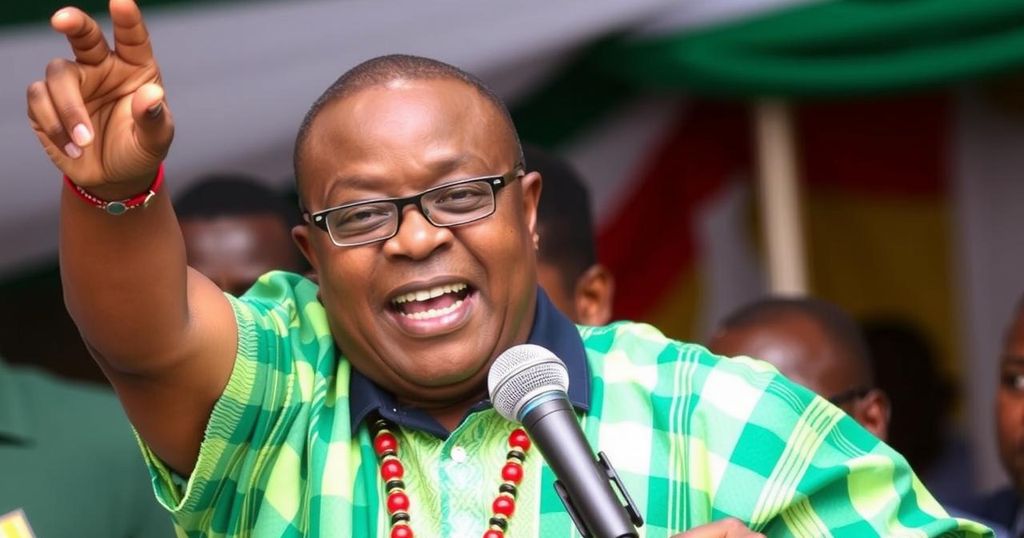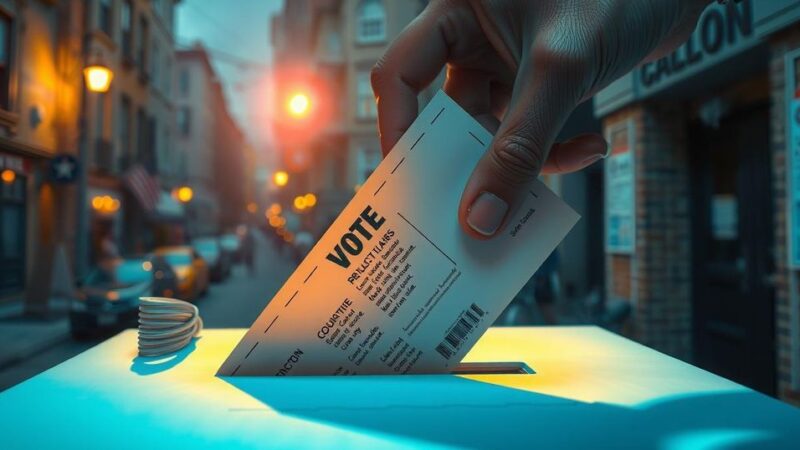Former President John Dramani Mahama has won the presidential election in Ghana following the concession of Mahamudu Bawumia from the ruling party. Mahama’s National Democratic Congress also claimed victory in parliamentary elections. This election was heavily influenced by the struggling economy, characterized by high inflation and governmental debt, with voters seeking substantial change. Although voting was primarily peaceful, incidents of violence were reported in some areas.
Ghana’s former president, John Dramani Mahama, has successfully won the recent presidential election, marking a significant political comeback after defeat in 2016. This victory comes after Mahamudu Bawumia, the ruling New Patriotic Party’s candidate and Vice President, conceded defeat in a press conference held from his residence. Bawumia acknowledged the citizens’ desire for change, stating that he had congratulated Mahama, who leads the National Democratic Congress (NDC), now positioned to oversee both the presidency and parliamentary seats following their electoral success. Bawumia’s public admission of defeat was aimed at minimizing post-election tensions amidst reports of disturbances in several constituencies.
The backdrop of this election was heavily marked by economic challenges facing Ghana. Over recent years, the nation has grappled with high inflation, currency devaluation, and a looming debt crisis, which culminated in a $3 billion bailout from the International Monetary Fund. The ruling party struggled to address these issues under outgoing President Nana Akufo-Addo, who concludes his tenure after serving two terms. Meanwhile, Mahama, who previously held the presidency from 2012 to 2017, campaigned on a platform committed to revitalizing the economy and addressing the needs of younger voters who viewed this election as critical to escape their current hardships.
The election process witnessed relatively peaceful voting, notwithstanding isolated incidents of violence, including two reported fatalities in distinct regions of the country. The electoral commission has yet to formally announce the official results of the election, though preliminary indications from the NDC suggest Mahama secured 56.3 percent of the vote, compared to Bawumia’s 41.3 percent. These developments signify a pivotal moment in Ghana’s political landscape, indicating a shift in public sentiment driven largely by economic concerns.
Ghana is currently facing a significant economic crisis characterized by high inflation, a national debt that is unsustainable, and a currency that has lost substantial value. In the recent elections, these factors were paramount, influencing the electorate’s decisions, particularly as the ruling party, the New Patriotic Party (NPP), has struggled to manage this economic upheaval. Additionally, the convergence of economic dissatisfaction and political change is not uncommon in Ghanaian politics, as evidenced by Mahama’s previous presidency and his recent campaign promises to rejuvenate the economy. His successful comeback reflects the complex interplay of economic conditions and political aspirations in the country.
The recent presidential election in Ghana has ushered in a new chapter with John Dramani Mahama’s victory over incumbent Vice President Mahamudu Bawumia. This development comes amid pressing economic challenges that have spurred calls for change among Ghanaian voters. Mahama’s campaign emphasized economic rejuvenation, and his win reflects a public desire for decisive action in addressing the nation’s financial difficulties. The peaceful transition of power, despite isolated incidents of violence, underscores the resilience of Ghana’s democratic processes.
Original Source: www.rfi.fr






